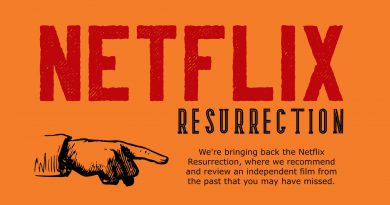Competing Depictions Of Fyre Festival Documentaries
Initially believed to be a once-in-a-lifetime music festival on the Bahamian Island of Great Exuma, Billy McFarland’s Fyre Festival appeared to be everything the rich and famous were looking for until it all came crashing down—horribly.
McFarland conned thousands of unsuspecting partiers out of their hard-earned cash, leaving them with little to no food, water, bedding, and lack of transparency. The Fyre Festival was supposed to be a world-class event, combining music, celebrities and luxury services at a rather “inexpensive price.” Instead of hanging out with models and drinking expensive alcohol, people were treated to FEMA tents and sliced cheese sandwiches. Because he’s currently serving a six-year prison sentence for his transgressions, popular streaming sites Hulu and Netflix have both decided to release documentaries about McFarland’s supposed “Party of the Century.”
Hulu was the first of the two sites to strike, dropping their piece titled Fyre Fraud just three days before Netflix’s. Directed by Jenner Furst, and featuring appearances from McFarland himself, along with past employees and his current girlfriend, Hulu’s documentary was perhaps the least biased of the two. They did well presenting the facts for what they were. Hulu also gave us a mini-biography of McFarland, providing a glimpse of who he was before “Fyre.” From conning his fellow classmates out of crayons to starting his own business at thirteen, Hulu let the information speak for itself; because of this, McFarland is seen as a manipulative, calculated, professional liar and, with his actions surrounding the Fyre Festival, it proves to be true.
As for Netflix’s take on the Fyre Festival. It’s much more sinister.
Simply titled Fyre, they held no punches, laying out all of McFarland’s shortcomings and exposing him for the fraud he proved to be. Unlike Hulu’s documentary, Netflix put a heavier emphasis on rapper Ja Rule’s involvement in the project, showing him and McFarland spending absurd amounts of money on what was supposed to be “business trips” to the Bahamas. There were also interviews with the people who worked with McFarland and Ja Rule, which would include several journalists, YouTube personalities that went to the event and the creative directors for the festival. This isn’t surprising considering the financiers of the movie were the social media team responsible for the festival’s advertisement. Due to their involvement, the documentary was rather one-sided and put the blame solely on McFarland, antagonizing him and his team instead of rightfully dividing it between both parties.
The contrasting styles of these two documentaries indicate a larger fight between the two streaming giants. Hulu, smartly, used the hype for Netflix’s documentary for “free promotion,” even giving a slight dig at their competitor at the end of the film. However, Hulu could see themselves as a serious option for those who don’t want to continue to pay for Netflix. With the company announcing price hikes in early January with its standard plan going from $10.99 to $12.99 per month, Hulu must’ve seen an opening for ex-Netflix customers who want more content for a lower, more affordable price. This jostling for streaming site superiority will only continue throughout the year. If the contrasting styles of these documentaries are any indication, we will begin to see Hulu gazump Netflix in more ways than just highly-anticipated documentaries.




